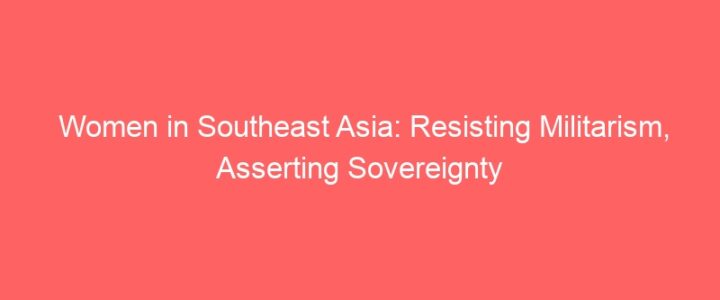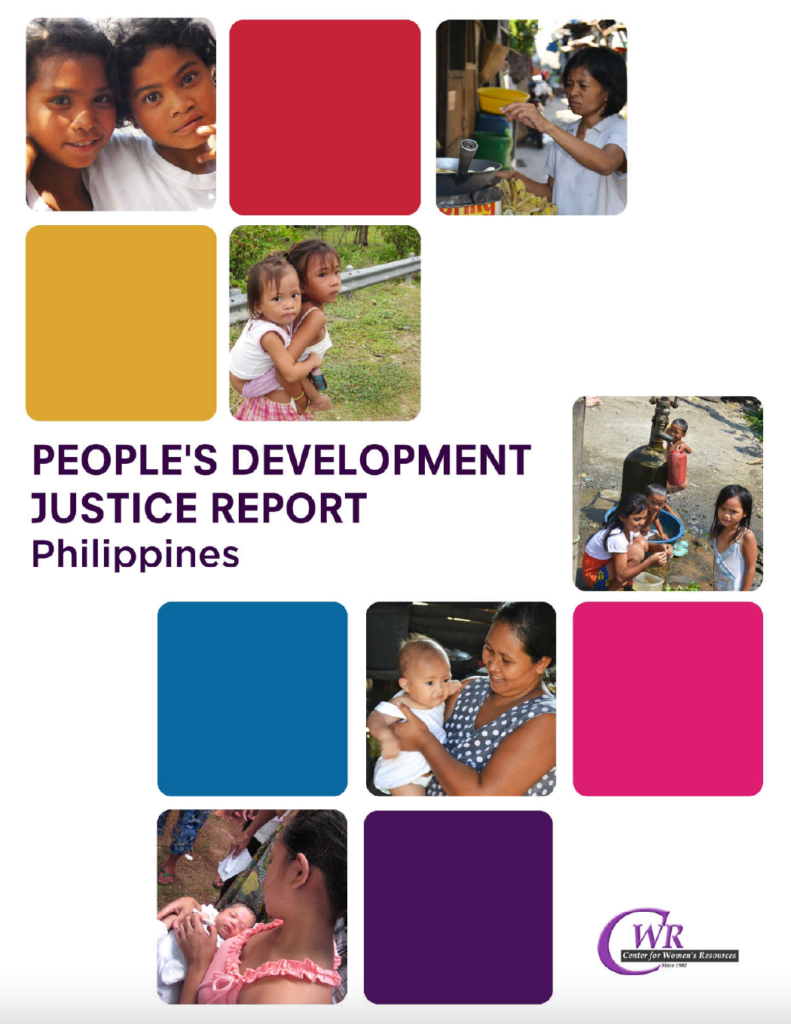Publications
Special publications from Center for Women’s Resources
Ambitious Promises and Agendas: The Status of Filipino Women in the First Year of the Marcos Jr. Administration
July 2023
Women are unquestionably the face of poverty in the Philippines. As a result of the government’s endorsement of the neoliberal framework, the majority of women belong to the poorest strata of society. Every administration, from Marcos Sr. to Marcos Jr., believes that the only way for the Philippines to develop and progress is through neoliberalism.
Some people who benefit from neoliberalism become rich, but not women workers, farmers, or the poor in rural and urban areas. Foreign firms continue to amass immense profits in our country thanks to neoliberalism, with the support of the bourgeoisie, landlords, and the bureaucracy.
The challenge for women has grown in recent years. The skyrocketing prices of food and other basic products and services contribute to the loss of income and livelihood. Women will be particularly affected if the global capitalist crisis worsens. Hunger, poverty, and violence are all prevalent. No amount of spreading deception and fake news can conceal the people’s crisis and the relentless violation of their rights.
Despite the dire crisis confronting women, Marcos Jr. is busy with senseless and lavish banquets, overseas visits, soliciting foreign investors, looking after cronies, and spreading disinformation and fake news. Despite the country’s record-breaking debt of P14 trillion, Marcos Jr.’s priorities include huge infrastructure projects, strengthening the military, and continued economic liberalization.
In his 8-Point Socioeconomic Agenda, and even in the Philippine Development Plan, there is no concrete plan for the uplifting of the lives of women and the people.
Read moreWomen in Southeast Asia: Resisting Militarism, Asserting Sovereignty

Women express their concern about the enhanced interest of the United States (US) in Southeast Asia. They know from experience that US presence in their countries results in intervention and control. They vividly remember Vietnam, Laos, Cambodia, Indonesia, and the Philippines. And in every intervention, women and children suffer from sexual abuse and violence. As recorded, the US intrusion has spawned an increased militarization and armed conflicts in the Asia-Pacific region, where 80% of victims comprise women and children.
People’s Development Justice Report

The Philippines is rich in natural resources, has fertile, arable lands, diverse flora and fauna, extensive coastlines, and rich mineral deposits. Despite its rich natural resources, the Philippine economy remains underdeveloped and more than a quarter of its population is living below poverty line.
The Philippine government has committed to achieve the Goals of the Agenda 2030 through its Philippine Development Plan (PDP) 2017-2022. The PDP is anchored in the Zero to 10 Point Socioeconomic Agenda, the AmBisyon Natin 2040, which the government deems the collective vision of Filipinos for the next 25 years.
The PDP follows the neoliberal model of economic growth and profit, based on market competition and free trade, and gives high priorities for the private sector involvement. The government’s development framework promotes liberalized trade and investments, flexibilization of labor, privatization of public services, cutbacks on public spending, among others. This framework gives local and foreign corporations all the opportunities to grab productive resources to raise their capital, to make profits without restrictions, and get big tax cuts and privileges.
With such development plan, women are the worst-impacted, as patriarchal values continue to reinforce women’s lack of socioeconomic power and disproportionate susceptibility to poverty. The Philippine government also continues to prioritize enhanced militarism over addressing the systemic and structural roots of unrest such as poverty, displacement, and the monopolization of land and resources by corporations. The realization of the SDGs in the Philippines is further threatened by the country’s high vulnerability to the climate crisis, and it is the women who bear the greatest impacts of climate change.
This report focuses on five priority goals namely Goal 4 on Quality Education, Goal 8 on Decent Work, Goal 10 on Reducing Inequalities, Goal 13 on Climate Action, and Goal 16 on Peace, Justice and Strong Institutions. Using relevant indicators, the report provides national and regional data derived from the national statistical system, as well as data and information gathered by different development institutions, civil society and people’s organizations. It also presents stories from interviews, focus group discussions and consultations with women from different sectors – peasant, indigenous and national minorities, workers, urban poor, young women, as well as women leaders from different communities in the Philippines.
To access the full report, email us at cwr@centerforwomensresources.org
